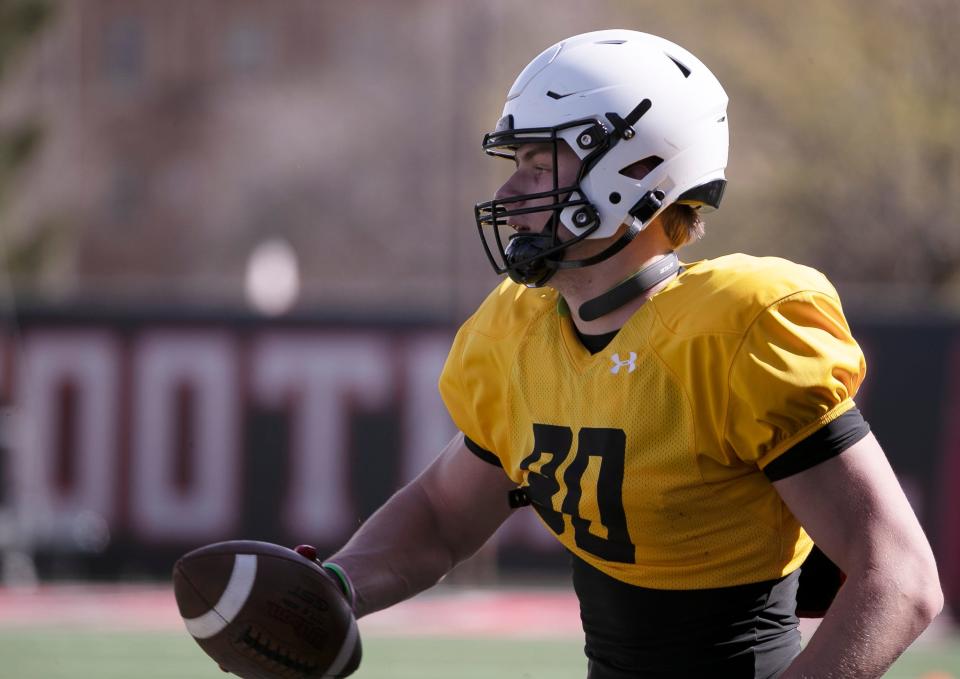Texas Tech football staff looking at ways to take care of Mason Tharp
Mason Tharp usually sticks out on a football field by being the tallest player out there just about every Saturday. During Texas Tech football spring practice, the Red Raiders' 6-foot-9, 270-pound tight end was conspicuous for spending every workout in a gold jersey, meaning he participated on a non-contact basis.
Tech coach Joey McGuire said Tharp has had three concussions during his college career. The staff team wants to give him as much recovery time as possible and not take needless risks.
"If you go too close to concussions (in succession)," McGuire said, "there's a chance to where you're like, 'OK, you're never playing again.' We didn't want to do that."
The junior from Klein has played in 22 games the past two seasons, starting 15. He's caught 26 passes for 298 yards and three touchdowns. But he missed the last two regular-season games in 2022 and the Red Raiders' Texas Bowl victory over Mississippi.
Tharp will be back as a full participant in the fall, McGuire said. In the meantime, the Tech medical staff is looking at ways to provide him protection.
They've gotten him a Q-collar, a device manufactured by Q-30 Innovations, which markets the product as "The only FDA-cleared device that helps protect the brain during head impacts." Q-30 says the Q-Collar is backed by 10 years of research and more than 25 lab and clinical studies.
Inside Tech tight end's comeback: Getting back on track: Baylor Cupp, after 2 seasons lost to injuries, wants to show he can still be a top-notch tight end
Long road back to West Texas: Moving on up: Tight end Henry Teeter sheds walk-on status after transfer to Texas Tech
Dallas Cowboys running back Tony Pollard and former Cowboys tight end Dalton Schultz are among players who have worn the Q-Collar. Chris Nowinski, a neuroscientist who founded Boston University's CTE Center as well as the Concussion Legacy Foundation, has been skeptical of claims made about the Q-Collar's protective benefits.
The premise of the Q-Collar is that gentle pressure on the sides of the neck slightly increases blood volume in the brain, cushioning brain impact with the skull during hits to the head.
The Tech staff is looking at other ways to help Tharp and other players.
"We're trying different kind of mouthpieces with a group of our guys," McGuire said. "If it goes the right way and we feel good about it and there's science behind it, we might go full team that way. There's just not enough science behind that mouthpiece yet."
The Red Raiders have a deep pool of returning tight ends with Baylor Cupp, Tharp, Henry Teeter and Jayden York listed in that order on the post-spring depth chart.

This article originally appeared on Lubbock Avalanche-Journal: Texas Tech football staff looking at ways to take care of Mason Tharp

